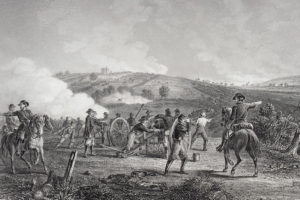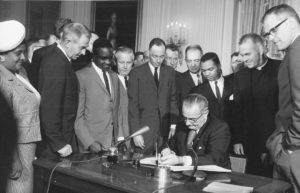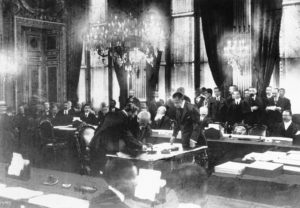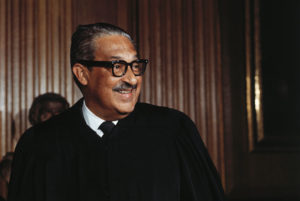-
January
-
February
- This Week in History: February 6-12 – Lesson
- This Week in History: February 6-12 – Quiz
- This Week in History: February 13-19 – Lesson
- This Week in History: February 13-19 – Quiz
- This Week in History: February 20-26 – Lesson
- This Week in History: February 20-26 – Quiz
- This Week in History: February 27-March 5 – Lesson
- This Week in History: February 27-March 5 – Quiz
-
March
- This Week in History: March 6-12 – Lesson
- This Week in History: March 6-12 – Quiz
- This Week in History: March 13-19 – Lesson
- This Week in History: March 13-19 – Quiz
- This Week in History: March 20-26 – Lesson
- This Week in History: March 20-26 – Quiz
- This Week in History: March 27-April 2 – Lesson
- This Week in History: March 27-April 2 – Quiz
-
April
- This Week in History April 3-9 – Lesson
- This Week in History April 3-9 – Quiz
- This Week in History: April 10-16 – Lesson
- This Week in History: April 10-16 – Quiz
- This Week in History: April 17-23 – Lesson
- This Week in History: April 17-23 – Quiz
- This Week in History: April 24-30 – Lesson
- This Week in History: April 24-30 – Quiz
-
May
- This Week in History: May 1 – 7 – Lesson
- This Week in History: May 1 – 7 – Quiz
- This Week in History: May 8 – 14 – Lesson
- This Week in History: May 8 – 14 – Quiz
- This Week in History: May 15 – 21 – Lesson
- This Week in History: May 15 – 21 – Quiz
- This Week in History: May 22-28 – Lesson
- This Week in History: May 22-28 – Quiz
- This Week in History: May 29-June 4 – Lesson
- This Week in History: May 29-June 4 – Quiz
-
June
- This Week in History: June 5 – 11 – Lesson
- This Week in History: June 5 – 11 – Quiz
- This Week in History: June 12-18 – Lesson
- This Week in History: June 12-18 – Quiz
- This Week in History: June 19-25 – Lesson
- This Week in History: June 19-25 – Quiz
- This Week in History: June 26 – July 2 – Lesson
- This Week in History: June 26 – July 2 – Quiz
-
July
- This Week in History: July 3 – 9 – Lesson
- This Week in History: July 3 – 9 – Quiz
- This Week in History: July 10 – 16 – Lesson
- This Week in History: July 10 – 16 – Quiz
- This Week in History July 17 – 23 – Lesson
- This Week in History July 17 – 23 – Quiz
- This Week in History – July 24-30 – Lesson
- This Week in History – July 24-30 – Quiz
- This Week in History: July 31 – August 6 – Lesson
- This Week in History: July 31 – August 6 – Quiz
-
August
- This Week in History: August 7-13 – Lesson
- This Week in History: August 7-13 – Quiz
- This Week in History: August 14 – 20 – Lesson
- This Week in History: August 14 – 20 – Quiz
- This Week in History: August 21 – 27 – Lesson
- This Week in History: August 21 – 27 – Quiz
- This Week in History: August 28 – September 3 – Lesson
- This Week in History: August 28 – September 3 – Quiz
-
September
- This Week in History: September 4 – 10 – Lesson
- This Week in History: September 4 – 10 – Quiz
- This Week in History: September 11 -17 – Lesson
- This Week in History: September 11 -17 – Quiz
- This Week in History: September 18 – 24 – Lesson
- This Week in History: September 18 – 24 – Quiz
- This Week in History: September 25 – October 1 – Lesson
- This Week in History: September 25 – October 1 – Quiz
-
October
- This Week in History: October 2-8 – Lesson
- This Week in History: October 2-8 – Quiz
- This Week in History: October 9 –15 – Lesson
- This Week in History: October 9 –15 – Quiz
- This Week in History: October 16–22 – Lesson
- This Week in History: October 16–22 – Quiz
- This Week in History: October 23–29 – Lesson
- This Week in History: October 23 –29 – Quiz
- This Week in History: October 30 – November 5 – Lesson
- This Week in History: October 30 – November 5 – Quiz
-
November
- This Week in History: November 6 – 12 – Lesson
- This Week in History: November 6 – 12 – Quiz
- This Week in History: November 13 – 19 – Lesson
- This Week in History: November 13 – 19 – Quiz
- This Week in History: November 20 – 26 – Lesson
- This Week in History: November 20 – 26 – Quiz
- This Week in History: November 27- December 3 – Lesson
- This Week in History: November 27- December 3 – Quiz
-
December
This Week in History: June 26 – July 2 – Lesson

Battle of Gettysburg. Artist J.R. Chapin (Photo by Universal History Archive/Getty Images)
“History is a vast early warning system.” ~ Norman Cousins
July 1, 1863: The Battle of Gettysburg
On this day, the battle that would have one of the biggest influences on the US Civil War began. This was the Confederacy’s last chance to try and get support from other countries but their hopes were dashed as the battle ended in victory for the Union. General Robert E. Lee aimed to win a battle in a northern state, hoping to force the Union into negotiating an end to the war. However, Lee lost the battle and the event is now seen as the turning point of the war, with the Confederacy admitting defeat two years later.
The Battle of Gettysburg is considered one of the Civil War’s biggest battles, as it cost the most lives and also motivated President Abraham Lincoln to give the famous Gettysburg Address.
July 2, 1964: Johnson Signed the Civil Rights Act
The Civil War may have ended slavery, but there was still a lot of work to be done. After the Emancipation Proclamation, the 13th Amendment abolished slavery, the 14th Amendment made it so that former slaves were considered American citizens, and the 15th Amendment gave all men the right to vote, which included those who had been enslaved.

President Lyndon B Johnson signs the Civil Rights Act in a ceremony at the White House. (Photo by PhotoQuest/Getty Images)
It still took nearly 100 years, though, to legally end segregation and discrimination. President John F. Kennedy first proposed the comprehensive Civil Rights Act in 1963, saying the US “will not be fully free until all of its citizens are free.” But then Kennedy was assassinated, and President Lyndon B. Johnson took office.
Johnson signed the Civil Rights Act of 1964 on July 2. During his first State of the Union address, he said: “Let this session of Congress be known as the session which did more for civil rights than the last hundred sessions combined.” The Act ended segregation and banned employment discrimination due to race, color, religion, sex or national origin.
However, there were those who found a way around the new law. Some states used methods such as keeping poorer citizens from being able to get jobs if they could not pass a literacy test. Still, the Civil Rights Act was a major legal milestone in promoting equality.
Other Notable Mentions
June 25, 1945: The United Nations Charter was signed by 50 nations in San Francisco, California, and ratified on October 24.

Signing the Treaty of Versailles (Getty Images)
June 28, 1914: Archduke Franz Ferdinand, crown prince of Austria, and his wife were assassinated, which was the event that sparked the beginning of World War I.
June 28, 1919: The Treaty of Versailles was signed, formally ending World War I.
July 1, 1971: The 26th Amendment was enacted. This allowed American citizens 18 years and older to vote. The voting age had been 21.
June 30, 1997: The British Crown Colony flag was officially lowered in Hong Kong and replaced with a Chinese flag, representing the official transfer of power over the island to China.
July 1: Canada Day, formerly known as Dominion Day, is a national day to celebrate the confederation of Upper and Lower Canada on July 1, 1867.
July 1, 1862: President Abraham Lincoln signed the first income tax bill and the Bureau of Internal Revenue was established.
July 2, 1788: Congress announced that the US Constitution had been ratified.
July 2, 1881: President James A. Garfield was shot at a railway station in Washington, DC. He died two months later on September 19.
Famous Birthdays
Pearl Buck (June 26, 1892) was born in Hillsboro, West Virginia. An American author, she wrote about the Chinese culture and was considered an authority on the subject. She won a Nobel Prize in 1938 for her many books, including The Good Earth.
Mildred “Babe” Didrikson (June 26, 1911) was born in Port Arthur, Texas. An athlete, she was nicknamed after Babe Ruth and won gold medals in the 1932 Olympics for javelin throw and high hurdle. She won 17 straight golf championships to become the first American winner of the British Ladies’ Amateur Tournament. In 1950, the Associated Press named her “woman athlete of the first half of the 20th century.”
Mildred J. Hill (June 27, 1859) was born in Louisville, Kentucky. An American musician, she is known for composing the melody for the song Happy Birthday to You.

Justice Thurgood Marshall (Getty Images)
Jean-Jacques Rousseau (June 28, 1712) was born in Geneva, Switzerland. He was a philosopher and his book The Social Contract caused a stir in France for suggesting no laws are real unless agreed upon by the people. He also wrote that children should be given freedom to enjoy sunlight, play, and exercise.
Maria Goeppert Mayer (June 28, 1906) was born in Kattowitz, Germany. A German-American physicist, she participated in building the first atomic bomb and became the first American woman to win the Nobel Prize for physics.
Julia Lathrop (June 29, 1858) was born in Rockford, Illinois. As a social worker, she helped establish child labor laws and the first US juvenile court.
Thurgood Marshall (July 2, 1908) was born in Baltimore, Maryland. Nominated by President Lyndon B. Johnson, he became the first black judge on the US Supreme Court.
